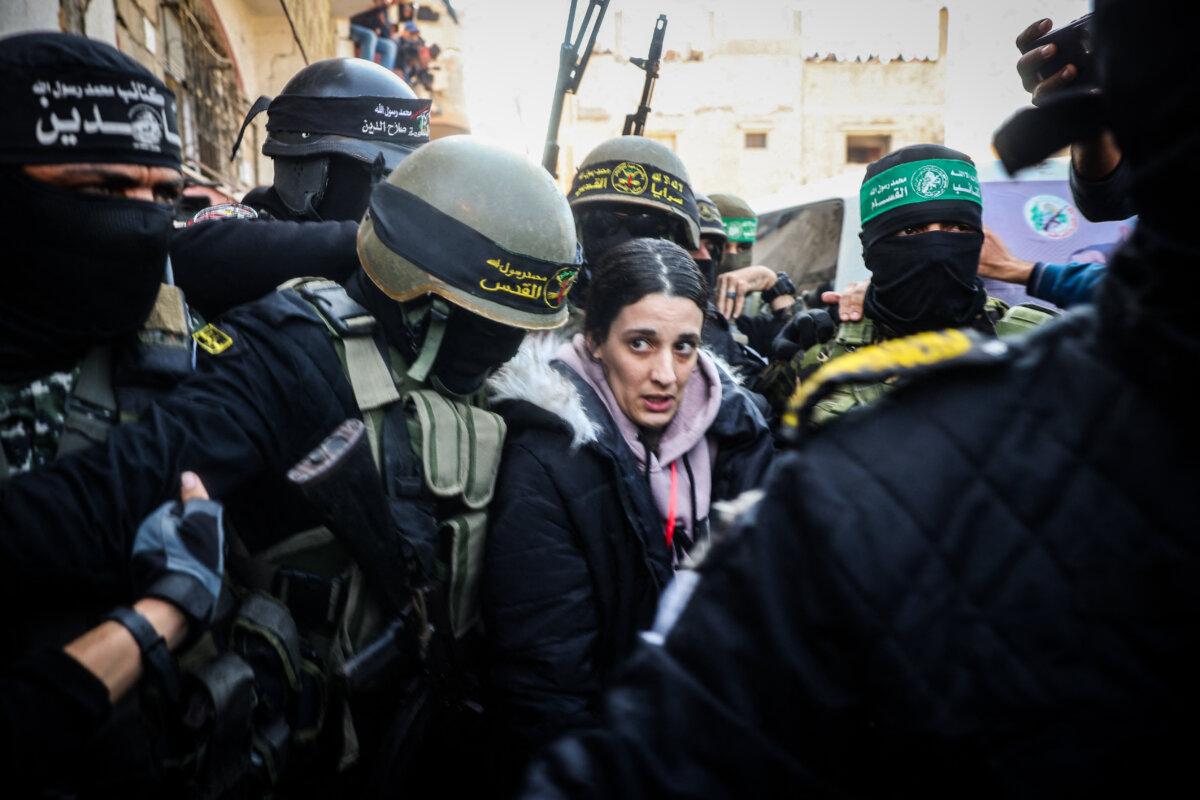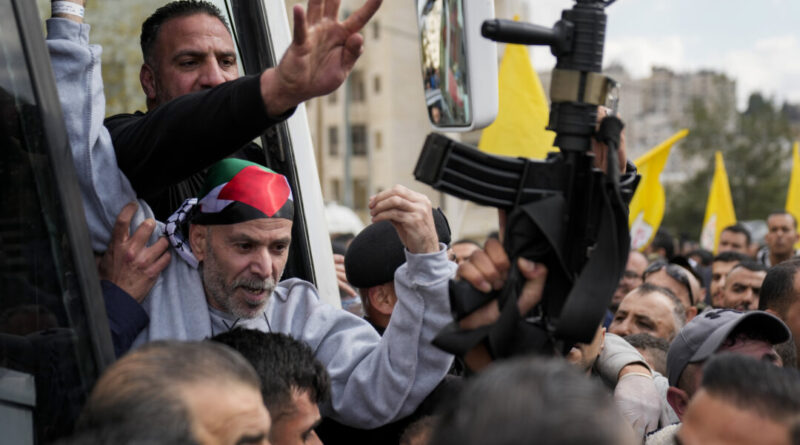Many Israelis Concerned About the Presence of Troublemakers Among Released Palestinian Prisoners
Israel has agreed to release up to 50 Palestinian prisoners, many of whom are serving life sentences for terrorist acts, for each Israeli hostage released in a deal with Hamas.
Part of the difficult compromise that Israelis must make in the release of hostages held by Hamas is the release of terrorists convicted of serious crimes, including orchestrating terror attacks, sending suicide bombers, and committing murders.
Zakaria Zubeidi led the Al Aqsa Martyrs’ Brigades during the Second Intifada, organizing numerous attacks, including one that killed six Israelis at a Likud political party office in Beit Shean in 2002.
Ahmed Barghouti, a senior military official in the Fatah terrorist organization, was serving 13 life sentences for attacks during the Second Intifada that resulted in the deaths of 12 Israelis.
Mohammed Abu Warda was serving 48 life sentences for planning multiple Hamas terror attacks during the Second Intifada, including a bus bombing in Jerusalem that killed 45 people.
Sami Jaradat, from the Palestinian Islamic Jihad, was responsible for a 2003 restaurant bombing in Haifa that killed 21 people.
Wael Qassem, Wassam Abbasi, and Mohammed Odeh were members of a Hamas terror cell that carried out bombings resulting in the deaths of 35 people, including attacks at a Hebrew University cafeteria, Rishon LeZion’s Shefayim Club, and a Jerusalem cafe.
Shadi Amouri from Fatah was serving 17 life terms for his involvement in a 2002 suicide bombing near Megiddo in northern Israel, which claimed the lives of 17 Israelis, including 13 IDF soldiers, and injured over 40 people.
These individuals were among the 183 Palestinians released on Feb. 1 in exchange for three Israeli hostages: Yarden Bibas, Keith Siegel, and Ofer Kalderon. Of those Palestinians, 111 were taken into custody the day after the Oct. 7, 2023, attack for suspected terrorist activities and were detained without trial. The remaining 72 were already serving long or life sentences in Israeli prisons for deadly attacks committed prior to the conflict.
Israel is obligated to release 50 prisoners for each Israeli soldier hostage freed and 30 prisoners for each civilian hostage, resulting in the release of nearly 2,000 terrorists or suspected terrorists during the initial phase of the cease-fire exchanges, which will see the return of 33 Israelis—25 living individuals and 8 bodies.
Similar exchanges have taken place since the cease-fire began on Jan. 19.
For years, Israel has been working to secure the return of hostages and the bodies of those killed, often paying a high price to do so.
In 2011, Israel exchanged 1,027 Palestinians for the release of a single Israeli soldier, Gilad Shalit, who had been kidnapped on Israeli soil five years earlier.
One of those released, Yahya Sinwar, later became the leader of Hamas’s military wing and was involved in the deadly Oct. 7, 2023, attack.

Islamic Jihad and Hamas terrorists escort Israeli hostage Arbel Yehud to hand her over to a Red Cross team as part of their third hostage-prisoner exchange, in Khan Yunis on Jan. 30, 2025. Eyad Baba/AFP via Getty Images
On that day, around 3,000 terrorists killed 1,200 people, mainly Israeli civilians, injured thousands, and took 250 hostages. Sinwar evaded the Israel Defense Forces (IDF) until his death on Oct. 16, 2024, during an encounter with Israeli troops in a Gaza apartment.
In Saturday’s exchange, detainees from Gaza who were not directly involved in the Oct. 7, 2023, attack were released for the first time since the conflict began.
There are mixed feelings among Israelis about the large number of prisoners being released.
Orit Mark Etinger, who lost her father in a 2016 terrorist attack, expressed her deep pain and anguish over the decision to release terrorist prisoners in exchange for hostages. She emphasized the fear of the repercussions of releasing murderers and the importance of bringing the innocent hostages back home.
The Associated Press and Reuters contributed to this report.





